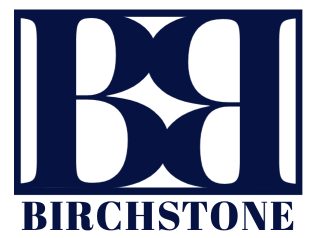In times of economic turmoil, investors seek safe havens to protect their assets and mitigate risk. One such safe haven that has gained prominence is multifamily real estate. Like a sturdy anchor amidst turbulent waters, multifamily properties have proven to be a stable asset class, offering long-term risk-adjusted returns.
This article explores the benefits and risks of investing in multifamily real estate during economic downturns, emphasizing the importance of due diligence and financial leverage. Additionally, it examines the tax advantages associated with this asset class.
By delving into these aspects, investors can make informed decisions in uncertain times.
Key Takeaways
- Multifamily real estate is considered a safe haven investment during economic downturns.
- It has historically provided the best long-term risk-adjusted returns.
- Multifamily real estate offers stable metrics and is an essential component of a diversified portfolio.
- Due diligence is crucial in mitigating investment risks in multifamily real estate.
What is it?
Multifamily real estate is considered a safe haven investment during economic downturns due to its historically stable metrics, long-term risk-adjusted returns, and its role as an essential component of a diversified portfolio.
Investment potential in multifamily real estate lies in its ability to provide stable cash flow through rental income and potential for long-term appreciation. Market performance has shown that multifamily real estate has some of the lowest default rates and special servicing rates compared to other property types. It is favored by GSE lenders, who have stricter underwriting standards and conservative lending practices.
This favorable market performance, along with its tax advantages and potential for diversification, make multifamily real estate an attractive investment option during economic turmoil. Savvy investors recognize its stability and potential returns even in challenging economic conditions, positioning it as a safe haven asset.
Benefits and Risks
One important aspect to consider when investing in multifamily real estate is the need for active management and maintenance, as well as the potential challenges associated with tenant turnover and vacancy rates.
Pros of investing in multifamily real estate include stable cash flow through rental income and the potential for long-term appreciation. Additionally, it offers tax advantages, such as deductions and depreciation benefits. Multifamily real estate provides diversification in investment portfolios and is a tangible asset that can provide a sense of security.
However, there are also cons to be aware of. Market conditions can impact rental rates and property values, and there can be challenges with tenant turnover and vacancy rates. Multifamily real estate requires thorough due diligence and risk assessment before investing, as it is not immune to economic downturns.
Overall, multifamily real estate can be a beneficial investment option for those who are willing to actively manage the property and navigate potential challenges.
Importance of Due Diligence
Thorough due diligence is crucial in real estate investments as it allows for a comprehensive examination of property, financial, and legal aspects, helping investors identify potential risks and opportunities and make informed decisions.
The due diligence process involves conducting a detailed analysis of the property, including its physical condition, location, and potential for rental income. Financial aspects such as income and expense statements, rent rolls, and market analysis are also evaluated.
Additionally, legal aspects such as title searches, zoning regulations, and lease agreements are reviewed. Risk assessment techniques are employed to identify potential risks such as tenant turnover, vacancy rates, and market conditions that could impact rental rates and property values.
By conducting thorough due diligence, investors can mitigate investment risks and ensure that they are making sound investment decisions based on accurate information.
Financial Leverage and Tax Deductions
Financial leverage plays a significant role in real estate investments. It allows investors to utilize borrowed funds to potentially increase their returns and take advantage of tax deductions. These deductions, such as mortgage interest and property taxes, can help reduce taxable income. When used wisely, financial leverage can be a powerful tool in real estate investments. However, it is crucial for investors to carefully manage leverage to avoid excessive risk. They should consider the cost of borrowing and potential cash flow implications.
Maximizing tax deductions is another important aspect of real estate investing. Investors can benefit from various deductions, including mortgage interest, property taxes, and depreciation. To fully take advantage of these deductions, it is recommended that investors consult with tax professionals. These professionals can provide guidance on how to optimize their tax strategies. Understanding tax laws and regulations is essential for real estate investors to ensure they are maximizing their tax benefits.
Overall, by effectively managing financial leverage and maximizing tax deductions, investors can optimize their real estate investments.
Frequently Asked Questions
How does multifamily real estate compare to other safe haven investments during economic turmoil?
Multifamily real estate has historically outperformed gold and government bonds as a safe haven investment during economic turmoil. Its stable cash flow, potential for long-term appreciation, and tax advantages make it an attractive option for investors seeking stability and potential returns.
What are some potential risks specific to investing in multifamily real estate during an economic downturn?
Potential risks of investing in multifamily real estate during an economic downturn include increased market volatility, which can impact rental rates and property values. Additionally, challenges with tenant turnover and vacancy rates may arise, requiring active management and thorough risk assessment.
How can investors conduct thorough due diligence when considering multifamily real estate investments?
Investors can conduct thorough due diligence when considering multifamily real estate investments by focusing on investor protection and market analysis. This involves examining property financials, legal aspects, market conditions, and potential risks and opportunities to make informed investment decisions.
What are some common mistakes that investors make when using financial leverage in real estate?
Common mistakes in using financial leverage in real estate include excessive borrowing, inadequate risk assessment, and failure to consider potential cash flow implications. Additionally, overlooking tax regulations for real estate deductions can lead to missed opportunities for reducing taxable income.
Are there any specific tax regulations or laws that real estate investors should be aware of when it comes to claiming deductions?
Real estate investors should be aware of tax regulations and laws when claiming deductions. For example, they can deduct mortgage interest, property taxes, and depreciation. Consulting with tax professionals can help maximize deductions and reduce taxable income.

